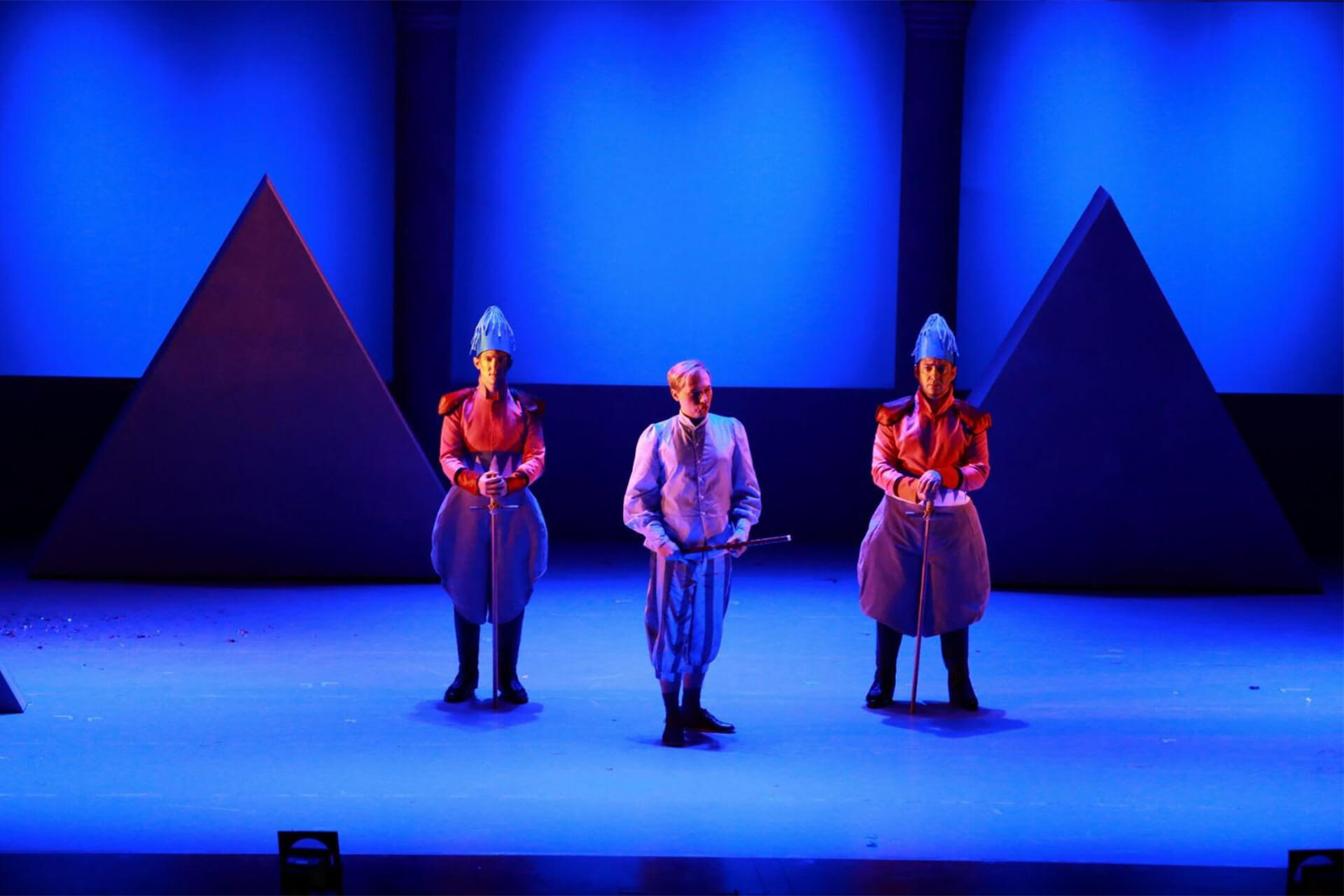Opera in two acts by W. Amadeus Mozart (libretto: Emanuel Schikaneder)

The Magic Flute
By Wolfgang Amadeus Mozart
"...The Magic Flute” presented the opera’s marvellous music and fairy tale world in a most delightful manner... There was a line-up of excellent singers with the Ashdod Orchestra offering fine musical support..."
Pamela Hickman’s blog
Prince Tamino has been sent to fight the forces of evil and save Princess Pamina who has been kidnapped from her mother (The Queen of the Night) by the wicked Sarastro. However, it turns out that the opposite is true: the kind and gentle Sarastro is actually protecting the Princess from her sinister and revengeful mother. Tamino the hero, learns during the course of his adventures to look upon the secrets of life from a different perspective and overcome the various obstacles put in his way – monsters and fears – with the help of the magic of music which soothes the soul and restores peace to the world.
The magical, comic and wondrous combinations and the many different musical styles woven together in Mozart’s masterpiece are sure to please. The Magic Flute is the ultimate example of European culture at its finest, incorporating Mozart’s symbolism’s and ideals – brotherhood and the unity of mankind.
What more can be asked from an opera which is forever fresh, merging musical surprises, an entertaining fable and the message of wisdom and humanity?
Director notes
Participants
Musical Director and Conductor: Omer Arieli
Stage Director: Monica Waitzfelder
The Ashdod Symphony Orchestra
Concertmeister: Bella Portnov
Chorus Master: Oded Shomrony
The Jerusalem Opera Choir and The Jerusalem Oratorio Chamber Choir
Artistic Advisor: Gabriele Ribis
Assistant Stage Director: Ari Teperberg
Stage Designer: Anna Ziv
Costume Designer: Shira Weiss
Lighing Designer: Adi Shimroni
Producer: Adi Juliusberger
Graphic Designer: Revital Toren
Stage Manager: Lee Teperberg Kanai
Lighting and Sound: Eli Paz, Artistic Lighting and Sound
Set Construction: The Theatre Workshop Ltd.
Makeup: Lilach Ofek Achai
Projections: Lustig Projections and Video
Public Relations: Anat Meromi Public Relations
Advertising and Marketing: Bimot
Rehearsal Pianists: Michael Zartsekel and Irina Rozhneva
Video Production: Udi Alfasi, Tranquilo Productions
Stills Photography: Elad Zagman, Larry Brandt
Public Relations Photos: Gaia Sa’adon
Surtitles: Daniel Lasry
Surtitle Projectionist: Hannah Harnest
Choir Coordinator: Louis Sachs
Soloists:
Semjon Bulinsky, tenor – Tamino
Samuel Berlad, baritone – Papageno
Na’ama Shulman, soprano – Pamina
Viktoria Varga, soprano – Queen of the Night
Denis Sedov, bass – Sarastro
Mima Millo, soprano – First Lady
Noa Hope, mezzo-soprano – Second Lady
Anna Peshes, mezzo-soprano – Third Lady
Jean-Christophe Born, tenor – Monostatos
Yuri Kissin, bass – High Priest
Ayelet Kagan, soprano – Papagena
Steven Timoner, bass – High Priest and understudy for Sarastro
Ofri Gross, tenor – Priest
Mika Erlich, Romi Zelig, Anna Peshes – Three Spirits

